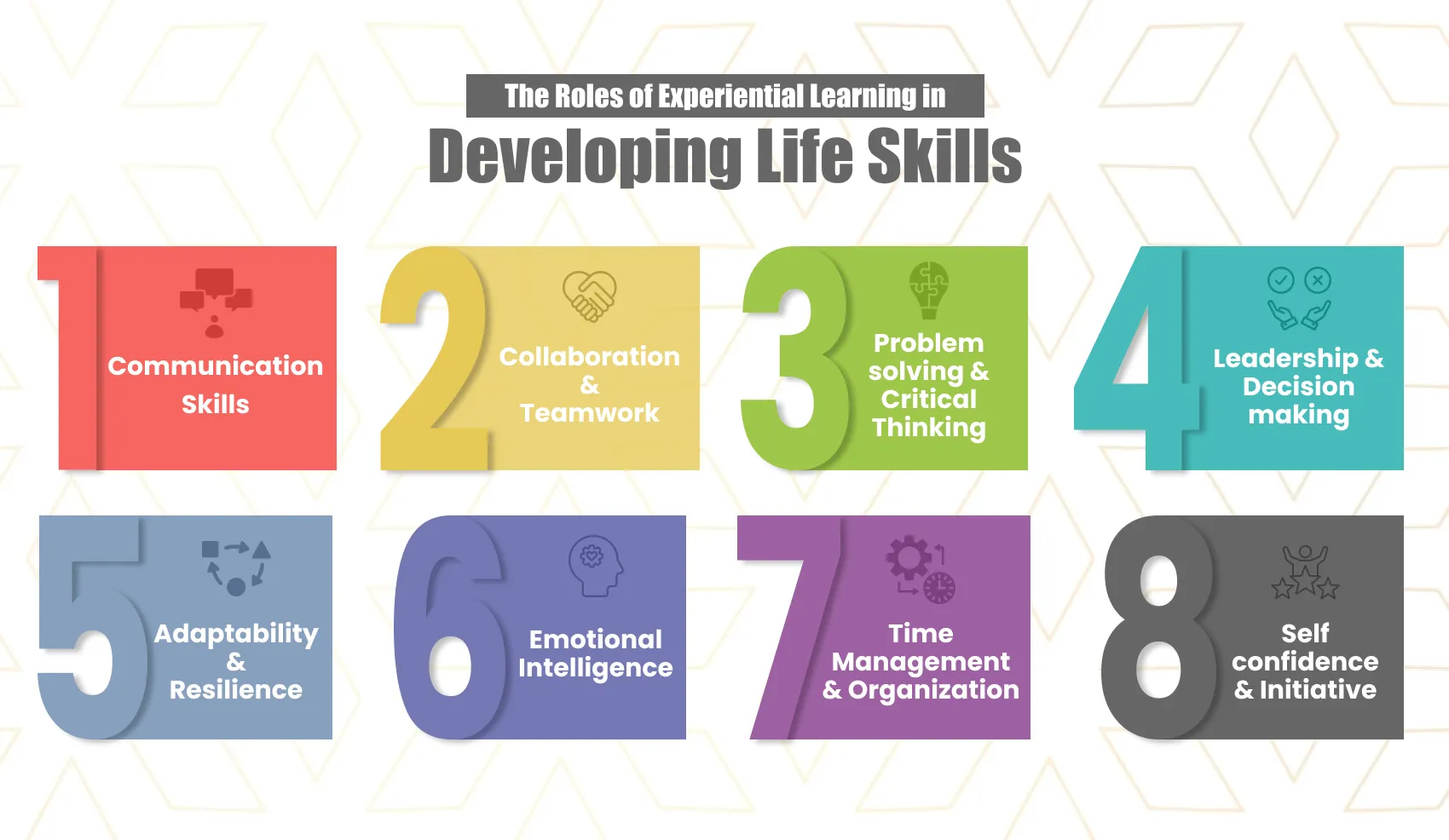
Introduction:
Life skills are essential competencies that enable individuals to navigate various challenges and succeed in their personal and professional lives. Experiential learning, with its emphasis on practical experiences and active engagement, plays a pivotal role in developing these crucial life skills. In this blog, we will explore how experiential learning empowers individuals to acquire and refine essential life skills.

Communication Skills:
Experiential learning provides opportunities for students to engage in real-life situations that require effective communication. Whether it's collaborating in group projects, presenting ideas, or engaging in discussions, students learn to articulate their thoughts, listen actively, and adapt their communication style to different contexts.
Collaboration and Teamwork:
Experiential learning fosters collaboration and teamwork, enabling individuals to work effectively in diverse groups. By participating in group activities, projects, and simulations, students learn to collaborate, delegate responsibilities, respect others' perspectives, and collectively achieve common goals.
Problem-solving and Critical Thinking:
Experiential learning encourages individuals to face real-world problems and challenges, promoting problem-solving and critical thinking skills. By actively engaging in problem-solving tasks, students learn to analyze situations, think critically, evaluate options, and make informed decisions.
Leadership and Decision-making:
Experiential learning provides opportunities for individuals to take on leadership roles and make decisions in practical contexts. By assuming leadership positions in group projects or simulations, students develop leadership skills, such as effective decision-making, delegation, and accountability.
Adaptability and Resilience:
Experiential learning exposes individuals to new and unfamiliar situations, promoting adaptability and resilience. By navigating through challenges, setbacks, and unpredictable circumstances, individuals learn to be flexible, adapt to change, and bounce back from failures.
Emotional Intelligence:
Experiential learning nurtures emotional intelligence by allowing individuals to recognize, understand, and manage their own emotions and those of others. Through group interactions, feedback sessions, and reflection exercises, individuals develop empathy, self-awareness, and effective interpersonal skills.
Time Management and Organization:
Experiential learning requires individuals to manage their time, set priorities, and organize tasks efficiently. Through project-based learning and hands-on experiences, individuals learn to plan, manage deadlines, and balance multiple responsibilities.
Self-confidence and Initiative:
Experiential learning empowers individuals to take initiative, assume responsibility, and build self-confidence. By actively participating in real-world experiences, individuals gain a sense of achievement, develop self-belief, and become proactive in seeking new opportunities.
Conclusion:
Experiential learning serves as a catalyst in the development of essential life skills. By immersing individuals in real-life situations, fostering collaboration, critical thinking, adaptability, and emotional intelligence, experiential learning equips them with the skills needed to thrive in various aspects of life. Whether in education, career, or personal growth, the benefits of experiential learning extend far beyond traditional classroom learning. Embrace experiential learning and empower individuals to navigate challenges, achieve success, and lead fulfilling lives enriched with valuable life skills.